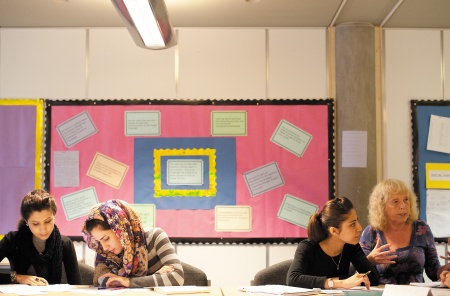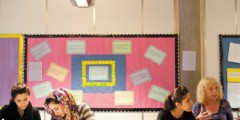A Vicious Cycle (Part Two)
December 3, 2013
Yan Lai Peen continues her discussion of the Human Capital that a sound knowledge of English can provide In the last blog post, I wrote about the necessity of knowing when to use standard grammar as an educator and asserted that an educational institution is where students acquire linguistic capital, especially if it is a …
A Vicious Cycle
November 13, 2013
One of the CELE staff teaching , Yan Lai Peen reflects on the teaching of English in Malaysia, and the human capital it can provide…….. In the previous blog entry, the writer considers the gaps in the recent EF English Proficiency Index, in which Malaysia ranks 11th in the world. However, merely two months ago, …
Why international measures of English may not be so clear
November 7, 2013
Recently, English First, a global language teaching chain released the results of a survey of global English Language proficiency. In first place came Sweden, then Norway, and a slew of other European nations. Malaysia came top in Asia and 11th globally, beating Singapore into 12th place, and India came quite some way back. So, at …
Reading Between the Headlines and Getting the Plot (Part 2)
October 18, 2013
In my previous blog post, I had emphasised that being effective readers requires more than merely understanding words – the ability to identify the writer’s implicit beliefs and bias is also very important. I once read an article in the “women’s section” of a local newspaper where the writer stated as fact that women “always …
Taking part in discussions
October 9, 2013
Some students find it difficult to take part in discussions, especially in English, and especially about complicated subjects. However, discussion is like many things, the more you put in, the more you get out. Below are some tips from the CELE senior tutor, Melissa Yoong, about what to do if this applies to you 1. …
A new self study resource
September 25, 2013
The British Council has a resource at http://learnenglish.britishcouncil.org/en/writing-purpose/introduction to help academic writers Based on extensive analysis of large collections of Academic Writing from British Universities, it helps students at all levels meet the expectations of academic writing.
Reading Between the Headlines and Getting the Plot
September 23, 2013
Whenever I ask my students what they understand by the term ‘read’, they often equate it to vocabulary comprehension – in other words, if I understand most of the words in the text, I can read well. However, this is a flawed assumption since reading also entails, among other things, the ability to discern the …
What is “Proper” English? Part Two
September 10, 2013
In the previous post, I asked the question “What is proper English”? The English spoken around the world differs in many ways- Americans write “color” and pronounce the final “r”- the English write “Colour” and the “r” is silent. There are also plenty of examples of similar differences between Malaysian English and British English- grammatical …
What is “Proper” English?
August 27, 2013
It would seem obvious to say that in an International University such as Nottingham, students and staff should use correct or proper forms of English- and even students and staff who do not have English as their first language should strive towards speaking “better English”. The term “proper English” is often used as a badge …









Recent Comments